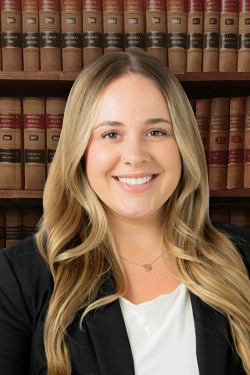Not all assets are handled the same way after someone dies in Pennsylvania. Here we will be discussing probate vs. non-probate property, addressing common misconceptions, and how the titling of assets and beneficiary designations can impact estate administrations.
 What is the Probate Process?
What is the Probate Process?
Probate is the legal, court-supervised process of administering a deceased person’s estate. The process involves validating a will (if one exists), and ensuring all assets are distributed in accordance with the will or Pennsylvania’s intestacy laws. The individual responsible for carrying out this process is the estate’s personal representative, either an executor (appointed by the decedent in their will), or an administrator (appointed by the court if no will exists).
Probate Property: assets titled solely in the decedent’s name with no beneficiary designations (e.g., individually owned homes, brokerage and bank accounts, shares of stock, tangible personal property, vehicles, and individually owned business interests).
What is Non-Probate Property?
Assets with beneficiaries or surviving joint owners bypass the above-mentioned process and are transferred to the beneficiary or joint owner without court supervision. These assets are considered non-probate property and most commonly consist of life insurance policies, retirement accounts, trust-owned assets, joint accounts, and jointly-owned real estate.
Significant Differences Between Probate and Non-Probate Assets During Estate Administration
Cost and Expenses: Probate often involves county court fees, additional attorney’s fees, and administrative expenses - all paid out of the probate estate.
Asset Accessibility: Non-probate assets are typically available to the beneficiaries immediately. Probate assets may not become available for some period of time - ranging from a few weeks to months.
Length of Time for Administration: The probate process for an estate administration ranges in time from start to finish, dependent on varying complexities, but takes approximately 12-20 months to complete. Although probate assets will be accessible well before the estate concludes, the executor may not be able to distribute them to the beneficiaries for fear of potential estate-related liabilities.
Tax Implications: There is no distinction between probate and non-probate assets when it comes to inheritance taxes - both asset classes may be subject to the PA Inheritance Tax.
Some Things to Consider:
Beneficiary Designations: Just because an account is traditionally a non-probate asset (a life insurance policy or a retirement account), appropriate beneficiary designations are key in determining whether it will be subject to probate.
Joint Property: Property held jointly with others will pass directly to that joint owner upon your passing. It is important to understand this when adding others to your accounts for reasons other than the desire for transfer at death.
Revocable Living Trusts: Assets held in trust will avoid probate if funded properly.
It is important that specific steps are taken to ensure your estate plan functions as intended. Our attorneys would be happy to formulate your estate plan or review your current plan to take advantage of asset protection, minimizing taxes, and make sure your goals will be met. An appointment can be scheduled with us by calling (610) 933-8069.

